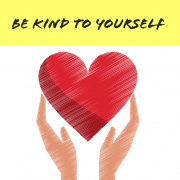Not all calories are created equally
Calories are often at the centre of our decision as to whether or not to eat a certain food. Many of us are counting our calories and many weight loss programs require you to do the same, but is it an effective long-term strategy?
We would say no, for a number of reasons:
- It’s very time consuming, and not a realistic long-term strategy for most people.
- Manufacturers are allowed up to 10% leeway when estimating calories in their products, so you may be eating more or less than you think.
- Calorie amounts found on food labels are based on something called the Atwater system, which basically involves estimating the energy of foods by measuring the heat given off when it is burned. However, the accuracy of the system is strongly disputed – for example, a 2012 study by a USDA scientist concluded that the measured energy content of a sample of almonds was 32% lower than the estimated Atwater value. Furthermore, it is known that some calories are lost in waste, without ever having been chemically converted or stored. It is really just generally accepted as true because there is no better way to estimate calories from food at this point.
- Calories from different foods are not all equal.

Calorie Inequalities
Professor Robert Lustig carried out a study. For example, you could eat a doughnut which is around 240 calories. The same calories are in a cup of avocado. One is a highly processed food and the other is picked off a tree. Same calories, same effect? Absolutely not.
With that in mind, let’s look at some examples of how the body breaks down, metabolises and uses food. The food contains the macronutrients fibre, protein, fat and carbohydrates.
Fibre
Nuts are high in fibre and there is some research to say that lean, healthy people tend to eat a lot of them. How can this happen given they’re high in calories? Let’s say you eat 160 calories in almonds. Because of the fibre in the almonds, some good things happen. First, the fibre keeps your blood sugar from rising too high, which keeps your insulin down. Secondly, the fibre bypasses the small intestine and goes intact to the large intestine and the good bacteria living there end up chewing it up instead of you absorbing them. So, even if 160 calories entered your mouth, only around 80% of those are actually available for you to absorb. This is because not all calories are created equal.
Protein
Digestion of food requires energy to create energy. This is called the thermic effect of food and protein requires over twice the energy to digest it if you compare it to fat and carbs.
Fat
Next, let’s look at the demonised fat. There are good fats and there are bad fats. Some fats are incredibly good for you and others will, over time, make you sick. Good fats are like omega 3s of salmon, flaxseed and walnuts or monounsaturated fat from avocado. Bad fats include trans fats which are found in many processed foods and junk food. Calories from fat are not all equal either.
Carbohydrates
Let’s look at carbohydrates. Like fat, there are good carbs and there are bad carbs. Like fat, there are good carbs and there are bad carbs. Good carbs from real, unprocessed food such as vegetables, legumes, fruit and whole-grains which are high in fibre. Refined carbohydrate is found in processed food, which is low in fibre. This is the reason the current western diet is low in fibre, which is a major factor as to why people are getting sick.
Ritualize has a simple approach to nutrition – we call it the 80/20 Lifestyle where 80% of your daily food intake is from real, whole food that was recently alive and 20% is your treat food. This approach means you don’t feel deprived, but maintain control of the treat food while getting all the nourishment your body needs to stay healthy.





